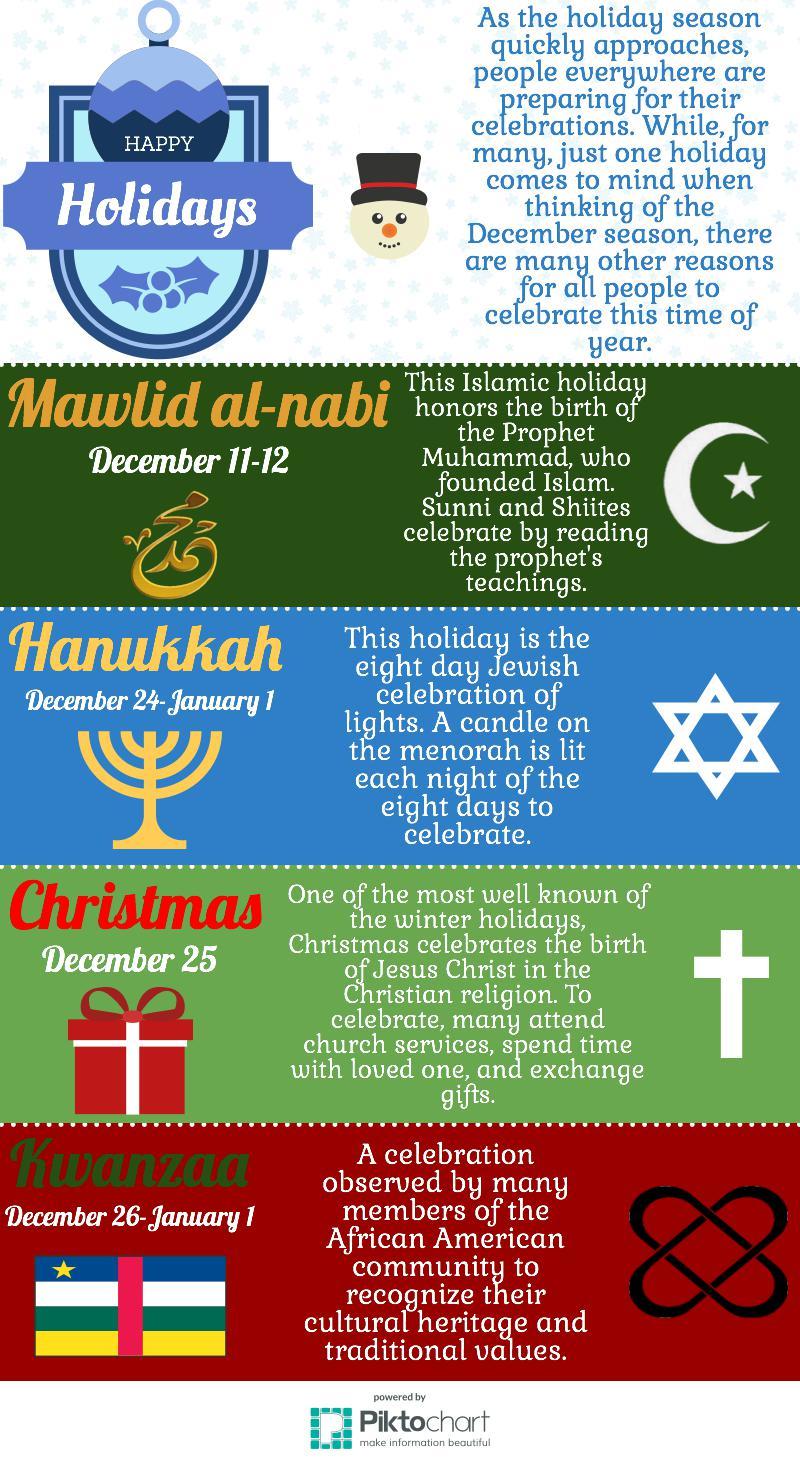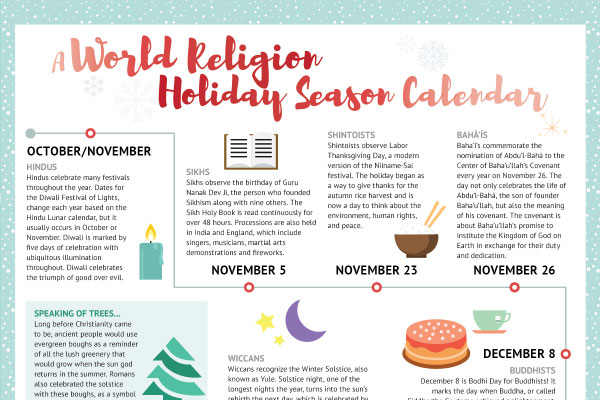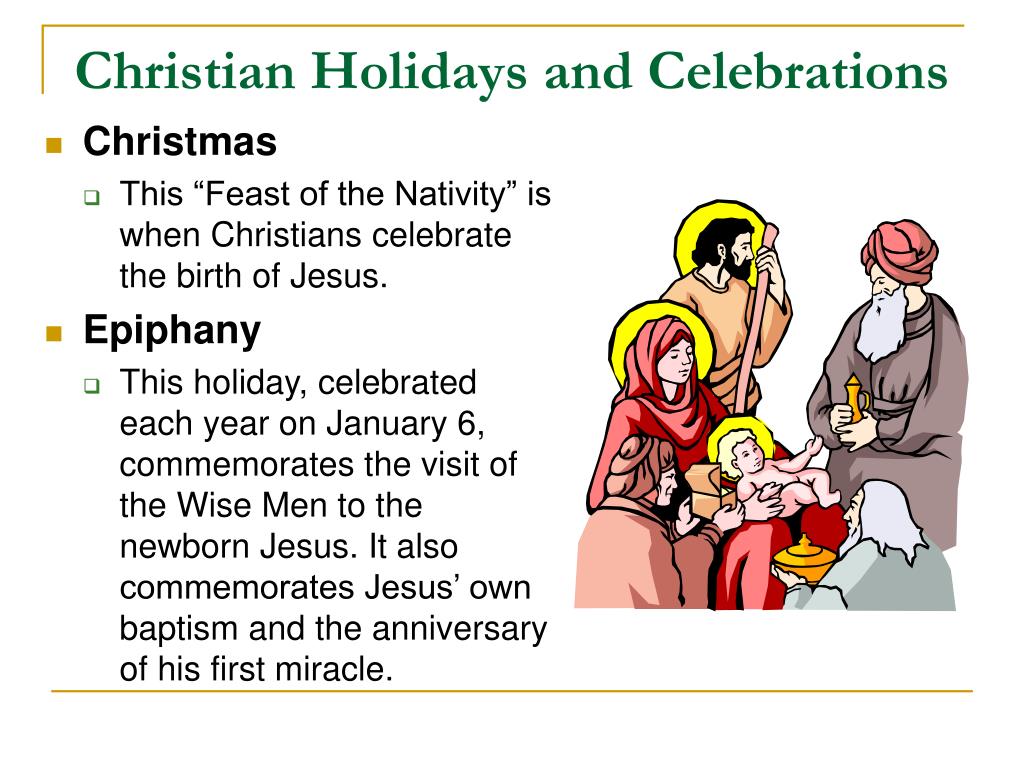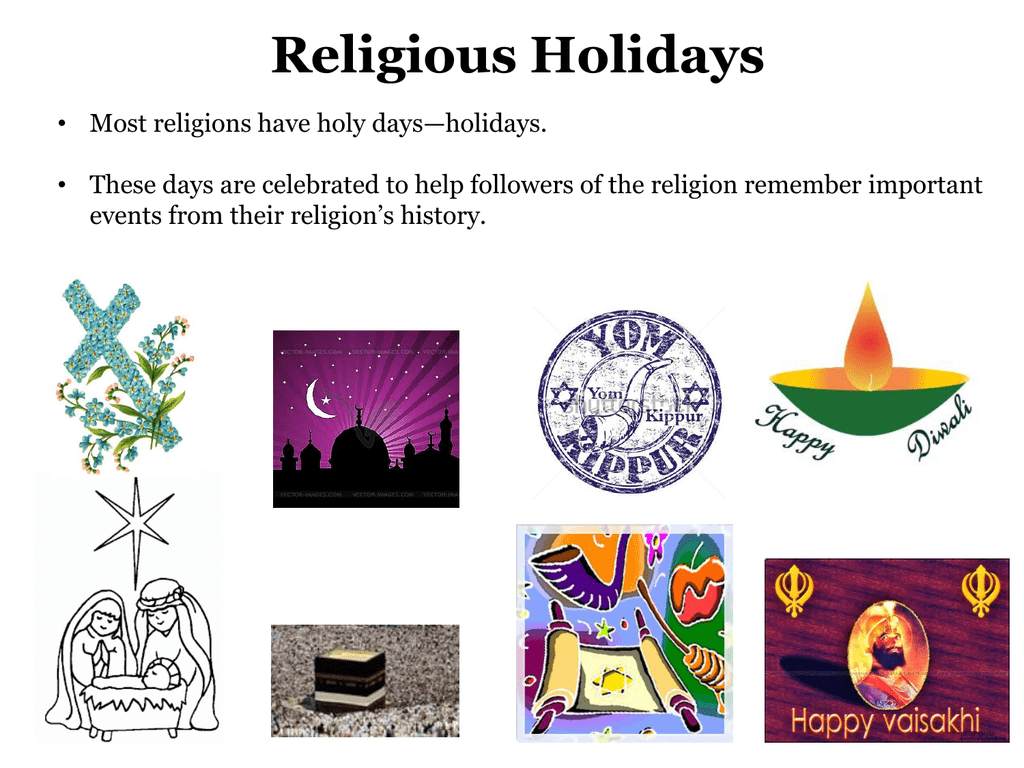
The holiday season is a time of joy, giving, and celebration for people of many different cultures and faiths. While Christmas is one of the most widely recognized holidays in the world, there are many other significant holidays in other religions that share similarities with Christmas. These holidays often commemorate important events, figures, or themes in their respective faiths, and are celebrated with unique traditions and customs.
One of the most important aspects of the holiday season is the spirit of generosity and kindness that it embodies. Many holidays around the world emphasize the importance of charity, compassion, and goodwill towards others. In this article, we will explore seven holidays from various religions that share similarities with Christmas, and highlight their unique traditions and customs.
1. Hanukkah (Judaism)

Hanukkah is a significant holiday in Judaism that commemorates the rededication of the Temple in Jerusalem during the Maccabean Revolt in the 2nd century BCE. The holiday is celebrated for eight days and nights, and is marked by the lighting of the Hanukkah menorah, also known as a hanukkiah. Each night, an additional candle is lit, until all eight candles and the shamash (helper candle) are lit.
Hanukkah is often referred to as the "Festival of Lights," and is a time of joy, celebration, and gift-giving. Traditions include playing dreidel, eating traditional foods such as latkes and sufganiyot (jelly donuts), and exchanging gifts.
Similarities with Christmas:
- Both Hanukkah and Christmas are celebrations of light and joy
- Both holidays emphasize the importance of kindness, generosity, and charity
- Both holidays involve the exchange of gifts and traditional foods
2. Kwanzaa (African-American Culture)

Kwanzaa is a week-long celebration honoring African-American culture and heritage. The holiday was created in 1966 by Maulana Karenga, an African-American scholar and activist, and is based on traditional African harvest festivals. Kwanzaa is celebrated from December 26 to January 1, and is marked by the lighting of the kinara, a seven-branched candleholder.
Each day of Kwanzaa is dedicated to one of the seven principles of Kwanzaa, known as the Nguzo Saba. These principles are values of African culture, and include unity, self-determination, collective work and responsibility, cooperative economics, purpose, creativity, and faith. Traditions include singing, dancing, playing games, and exchanging gifts.
Similarities with Christmas:
- Both Kwanzaa and Christmas are celebrations of community and family
- Both holidays emphasize the importance of kindness, generosity, and charity
- Both holidays involve the exchange of gifts and traditional foods
3. Omisoka (Shintoism)

Omisoka is a Shinto holiday celebrated on December 31 to mark the end of the year. The holiday is dedicated to the Shinto god, Amaterasu, and is a time for reflection, purification, and renewal. Traditions include visiting shrines and temples, cleaning and purifying the home, and eating traditional foods such as soba noodles and mochi.
Omisoka is also a time for family and friends to come together and celebrate the end of the year. Many people visit shrines and temples to pray for good luck, health, and happiness in the coming year.
Similarities with Christmas:
- Both Omisoka and Christmas are celebrations of renewal and new beginnings
- Both holidays emphasize the importance of family and community
- Both holidays involve traditional foods and rituals
4. Yule (Wicca/Paganism)

Yule is a pagan holiday celebrated on the winter solstice, typically around December 21 or 22. The holiday marks the longest night of the year, and is a time of celebration and renewal. Traditions include lighting the Yule log, decorating the home with evergreen branches and holly, and exchanging gifts.
Yule is also a time for reflection and introspection, and many people use the holiday as an opportunity to set goals and make resolutions for the coming year.
Similarities with Christmas:
- Both Yule and Christmas are celebrations of light and renewal
- Both holidays emphasize the importance of kindness, generosity, and charity
- Both holidays involve traditional foods and rituals
5. Bodhi Day (Buddhism)

Bodhi Day is a Buddhist holiday celebrated on December 8 to commemorate the enlightenment of Siddhartha Gautama, the founder of Buddhism. The holiday is marked by the decoration of the Bodhi tree, which is said to be the tree under which the Buddha achieved enlightenment.
Traditions include meditation, chanting, and the exchange of gifts. Many people also use the holiday as an opportunity to reflect on their spiritual journey and to make resolutions for the coming year.
Similarities with Christmas:
- Both Bodhi Day and Christmas are celebrations of spiritual growth and enlightenment
- Both holidays emphasize the importance of kindness, generosity, and charity
- Both holidays involve traditional foods and rituals
6. Las Posadas (Catholicism)

Las Posadas is a Catholic holiday celebrated from December 16 to 24 to commemorate the journey of Mary and Joseph to Bethlehem. The holiday is marked by processions, music, and traditional foods.
Traditions include reenacting the journey of Mary and Joseph, singing traditional Christmas carols, and exchanging gifts. Many people also use the holiday as an opportunity to reflect on the true meaning of Christmas and to come together with family and friends.
Similarities with Christmas:
- Both Las Posadas and Christmas are celebrations of the birth of Jesus Christ
- Both holidays emphasize the importance of kindness, generosity, and charity
- Both holidays involve traditional foods and rituals
7. Diwali (Hinduism)

Diwali is a Hindu holiday celebrated over five days to commemorate the triumph of light over darkness. The holiday is marked by the lighting of diyas (oil lamps), fireworks, and traditional sweets.
Traditions include cleaning and decorating the home, exchanging gifts, and worshiping the goddess Lakshmi. Many people also use the holiday as an opportunity to reflect on the importance of light and goodness in their lives.
Similarities with Christmas:
- Both Diwali and Christmas are celebrations of light and goodness
- Both holidays emphasize the importance of kindness, generosity, and charity
- Both holidays involve traditional foods and rituals
Gallery of Holidays Around the World




What is the significance of holidays around the world?
+Holidays around the world are significant because they provide a way for people to come together and celebrate their cultural heritage, traditions, and values. They also provide a way for people to reflect on their spiritual journey and to make resolutions for the coming year.
How do holidays around the world promote kindness and generosity?
+Holidays around the world promote kindness and generosity by emphasizing the importance of charity, compassion, and goodwill towards others. Many holidays involve traditional foods, rituals, and gift-giving, which help to foster a sense of community and togetherness.
What is the importance of light in many holiday celebrations?
+Light is an important symbol in many holiday celebrations because it represents the triumph of good over evil, light over darkness, and hope over despair. Many holidays involve the lighting of candles, diyas, or other lights to symbolize the importance of light in our lives.











